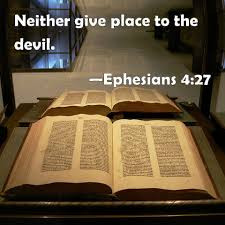
BY PROSPER TINGINI
Restitution is an agreed settlement in payment for a loss caused by the actions or inactions of an individual or a third party. In our commitments, there are various issues, different in nature that may arise and prejudice others. Disputes are common when there is a loss of some kind, or an injury that may cause some expenses to arise. Fights can ensue if people fail to come to an agreement on the matters at hand. Compensation for a loss or misdeed is a way of bringing justice to the victims. The Lord our God committed Himself to laying down some guidelines which society may use to achieve peace and justice in communities. He dedicated two full chapters of the Bible to give solutions to some given examples of cases which are of common occurrence between people.
Let us pick a few of the situations. Exodus 21:18-19 reads: “When men quarrel and one strikes the other with a stone or with his fist and the man does not die but keeps his bed, then if the man rises and walk around with his staff, he that struck him shall be clear; but he shall pay for the loss of time, and also pay to have him thoroughly healed.”
In another example, the Lord speaks: “When a man leaves a pit open, or when a man digs a pit and does not cover it, and an ox or a donkey falls into it, the owner of the pit shall pay compensation; he shall give the value of beast in money to its owner and the dead beast shall be his,” (Exodus 21:33-34). In a related case, Exodus 21:35-36 rules: “When one’s ox hurts another’s, so that it dies, then they shall sell the live ox and divide the price of it; and the dead beast they shall also divide. Or if it known that the ox has been accustomed to gore in the part, and its owner has not kept it in, he shall pay ox for ox, and the dead beast shall be his”.
Exodus 22:1 gives judgement: “If a man steals an ox or a sheep, and kills it or sells it, he shall pay five oxen for an ox, and four sheep for a sheep. He shall make restitution; if he has nothing then he shall be imprisoned for his theft. If the stolen beast is found alive in his possession, whether it is an ox or a donkey or a sheep, he shall pay double.” It seems there is a heavier sentence when there is a breach of His commandment, in this case; “Thou shall not steal.” Still on thieves, He says in Exodus 22:2: “If a thief is found breaking in, and he is struck so that he dies; there shall be no blood-guilty for him. But if the sun has arisen upon him (fails to exit the premises for some reason during night time), there shall be blood-guilt for him if he is killed”. This is meant to stop people from taking the law into their own hands during the day. However, at night it is justified since one cannot clearly see the dangerous weapons the thief might be carrying.
On matters to do with the loss of harvest from the fields, the Lord spoke, “When a man causes a field or vineyard to be grazed over, or lets his beast loose and it feeds in another man’s field, he shall make restitution from the best in his own field and in his own vineyard (Exodus 22:5).” This is meant to ensure that when restitution is made and when there is an element of substitution, inferior goods are not used as replacement. In a related issue, Exodus 22:6 also declares: “When fires breaks out and catches in thorns so that the stacked grain or the standing grain or the field is consumed, he that kindled the fire shall make full restitution.”
There are also matters to do with care and trust. The Lord adds: “If a man delivers to his neighbour money or goods to keep, and it is stolen from the man’s house, then if the thief is found, the thief should be made to pay back double. If the thief is not found, the owner shall come near to God (oath) to show whether or not he has put his hand to this neighbour’s goods. For every breach of trust, whether it is for ox, for donkey, for sheep, for clothing or for any kind of lost thing of which one says, ‘this is it’, the case of both parties shall be brought before a judge, he whom the judge shall condemn shall pay double to his neighbour,” (Exodus 22:7-9). The Lord our God values trust. This measures the integrity of a person, to a large extent.
Exodus 22:10-13 says: “If a man delivers to his neighbour a donkey, an ox or a sheep or any beasts to keep, and it dies or is hurt or is driven away, without anyone seeing it, an oath by the Lord shall be between them both to see whether he has not put his hand to his neighbour’s property; and the owner shall accept the oath, and the keeper shall not make restitution. But if it is stolen from him, he shall make restitution to its owner. If it is killed by beasts, the keeper shall bring the evidence to the owner; he shall not make restitution for what has been killed by a wild beast.” In this case, God wants to make sure that both parties are innocent of the disappearance or loss of the thing at the centre of the case; that is why an oath of innocence by the two is a precondition.
- Marange diamonds: Prosperity for a few, misery for many
- Mugabe leading in darkness
- Diamond mining in Zimbabwe: A story of the people fighting state and corporate human rights abuses and their stranglehold on natural resources
- UZ students protest against fees hike
Keep Reading
There is also the issue on borrowing. Some of the arrangements may be intricate in nature, but the Lord our God has the answers as solutions for everything. Exodus 22:14-15 reads: “If a man borrows anything of his neighbour, and it is hurt or dies, the owner not being with it, the man who borrowed shall make full restitution. If the owner was with it, he shall not make any restitution; if it was hired, it came for its hire.” The distinction between borrowing and hiring is that when something is borrowed, the care and the custody of the borrowed thing rest with the borrower. If the thing came on hire, then it is the owner who retains its welfare.
In another matter relating to men’s sexual adventures, the Lord proclaimed in Exodus 22:16-17: “If a man seduces a virgin who is not betrothed, and lies with her; he shall give the marriage present for her, and make her his wife. If the father utterly refuses to give her to him, he shall still pay money equivalent to the marriage present for virgins.” The upbringing of a daughter rests on the shoulders of the father as the head of a family; hence any compensation for the “violation” of a virgin should be made to the father.
There are numerous other cases not covered by the Lord, but there should always be some resolutions to all matters of conflict. Admission of guilt and payment of compensation heals relationships.
- Prosper Tingini is the Scribe of the Children of God Missionary Assembly—God’s messengers. Contact details: Mobile and Whatsapp: 0771 260 195. Email address: [email protected]











